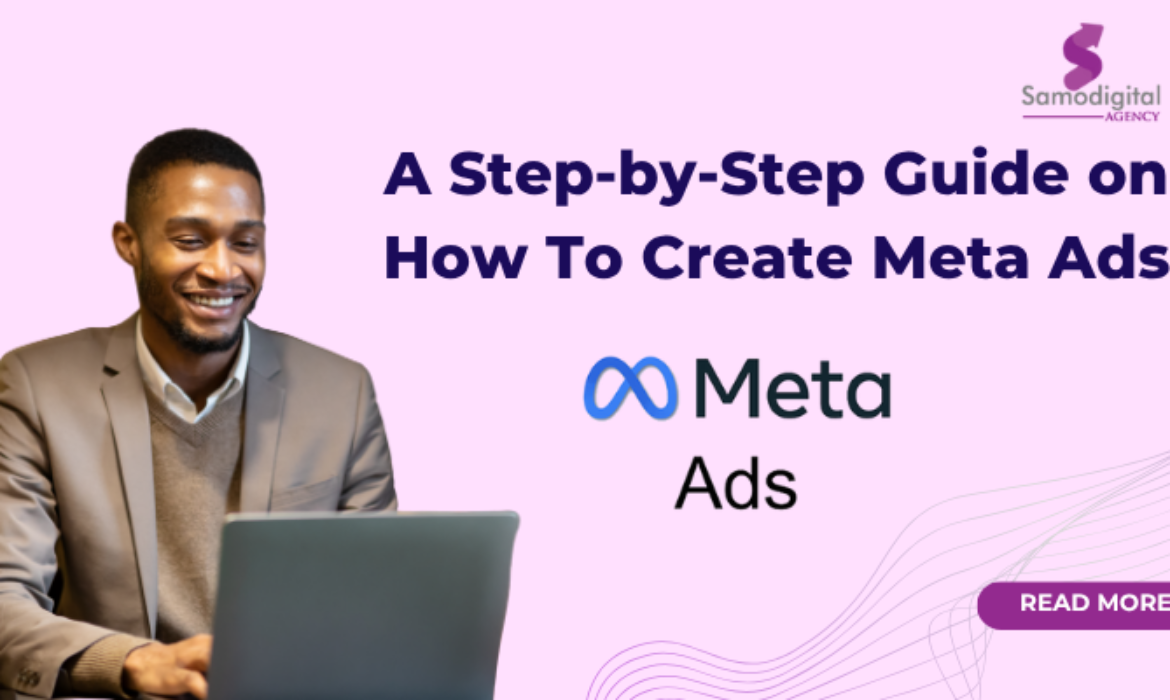
How to Run Effective Facebook and Instagram Ad Campaigns: A Step-by-Step Guide
How to Run campaigns on Facebook and Instagram?
I am sure you have come across sponsored posts on Instagram or Facebook, and you are wondering how you can run ads for your business, organization or personal brand.
Well, Meta’s advertising platform, which includes both Facebook and Instagram, provides businesses with an unparalleled opportunity to reach and engage their target audience. However, running successful campaigns requires a strategic approach, precise targeting, and continuous optimization.
This guide walks you through the essential steps on how to run campaigns on Facebook and Instagram.
1. Set Up Meta Business Manager
Before launching your ads, the first step is to set up Meta Business Manager, a centralized platform that allows businesses to manage ad accounts, pages, and permissions. Start by creating a Meta Business Manager account. This tool helps you manage your Facebook Pages, Instagram account, ad accounts, and team roles—all from one place.
Here’s what to do:
- Link your Facebook and Instagram pages.
- Add or create your ad account.
- Assign access to team members.
- Add your preferred payment method under Billing.
A proper setup avoids interruptions and keeps your campaigns organized.
2. Choose the Right Campaign Objective
Meta offers a range of advertising objectives designed to align with specific business goals. Selecting the right objective is crucial, as it dictates how the platform optimizes ad delivery.
Businesses looking to increase brand awareness should opt for the reach or brand Awareness objectives, while those seeking engagement and website traffic should choose Traffic or Engagement objectives. You can read more on How to choose the right ad objective in Meta Ads Manager
For direct sales and lead generation, Conversion-based objectives work best. Meta Ads Manager offers a variety of objectives based on your marketing goal. Your selected objective tells Meta how to optimize your campaign.
Choose from:
- Awareness: Reach, Brand Awareness
- Consideration: Traffic, Engagement, Video Views, Messages
- Conversions: Leads, Sales, Website Purchases
Example: Want more sign-ups? Choose “Leads.” Promoting a blog post? Go with “Traffic.”
3. Implementing Meta Pixel for Tracking
One of the most powerful tools available to advertisers is the Meta Pixel, a piece of code that tracks user interactions on your website. To install the Pixel, navigate to the Events Manager.
If you have a website, the Meta Pixel is essential. It’s a tracking tool that helps you measure performance and retarget users who visit your site.
To install the Pixel:
- Go to Events Manager.
- Click “Connect Data Sources” → Web → Meta Pixel.
- Name your Pixel and copy the code.
- Paste it into your site’s <head> section—or use integrations like Shopify or WordPress.
This enables better ad optimization and conversion tracking.
Platforms like Shopify and WooCommerce offer built-in integrations for easy setup. The Pixel enables businesses to track conversions, retarget visitors, and gather valuable insights into audience behavior. Ensuring proper Pixel setup allows for more accurate performance measurement and improved ad optimization.
4. Target the Right Audience
Reaching the right people is key to maximizing return on investment. Meta’s advertising platform offers robust targeting options, including Custom Audiences, Lookalike Audiences, and Detailed Targeting. Custom Audiences allow businesses to retarget website visitors, upload customer email lists, and engage with users who have interacted with their content.
Lookalike Audiences enable businesses to reach new potential customers who share characteristics with existing customers. Detailed Targeting refines audience selection based on demographics, interests, and behaviors, helping businesses connect with those most likely to convert.
5. Select Ad Placements for Maximum Impact
Meta provides multiple placement options, including Facebook Feed, Instagram Stories, and the Audience Network. Beginners may benefit from Automatic Placements, which let Meta optimize ad delivery across different platforms.
However, Manual Placements allow advertisers to tailor their strategy by selecting specific placements that align with their goals.
Instagram Stories work best with engaging vertical videos, while carousel ads in the Facebook Feed are effective for showcasing multiple products. Choosing the right placement ensures better engagement and improved performance.
6. Craft Engaging Ad Creatives and Copy
Compelling visuals and persuasive copy are at the heart of successful ad campaigns. High-quality images and videos that are optimized for mobile viewing perform best. When using video ads, it’s essential to capture attention within the first few seconds and include captions for viewers who watch without sound.
Copy should focus on the benefits of the product or service, use clear and concise language, and include a strong call-to-action (CTA) such as “Shop Now” or “Sign Up.” Running A/B tests on different creatives and headlines helps determine what resonates most with the audience.
6 Tips for winning ad creatives:
- High-Quality Visuals: Use sharp, clear, and high-resolution images or videos.
- Grab Attention Quickly: Hook your audience in the first 3 seconds and include captions.
- Keep it Short: Keep copy short, benefit-focused, and action-oriented.
- Include Strong CTA: Include a strong CTA (e.g., “Shop Now,” “Book Today”).
- Incorporate Branding Subtly: Include your logo and brand colors clearly but without overwhelming the creative.
- Test Different Copy Variations: Experiment with different headlines, primary text, and descriptions.
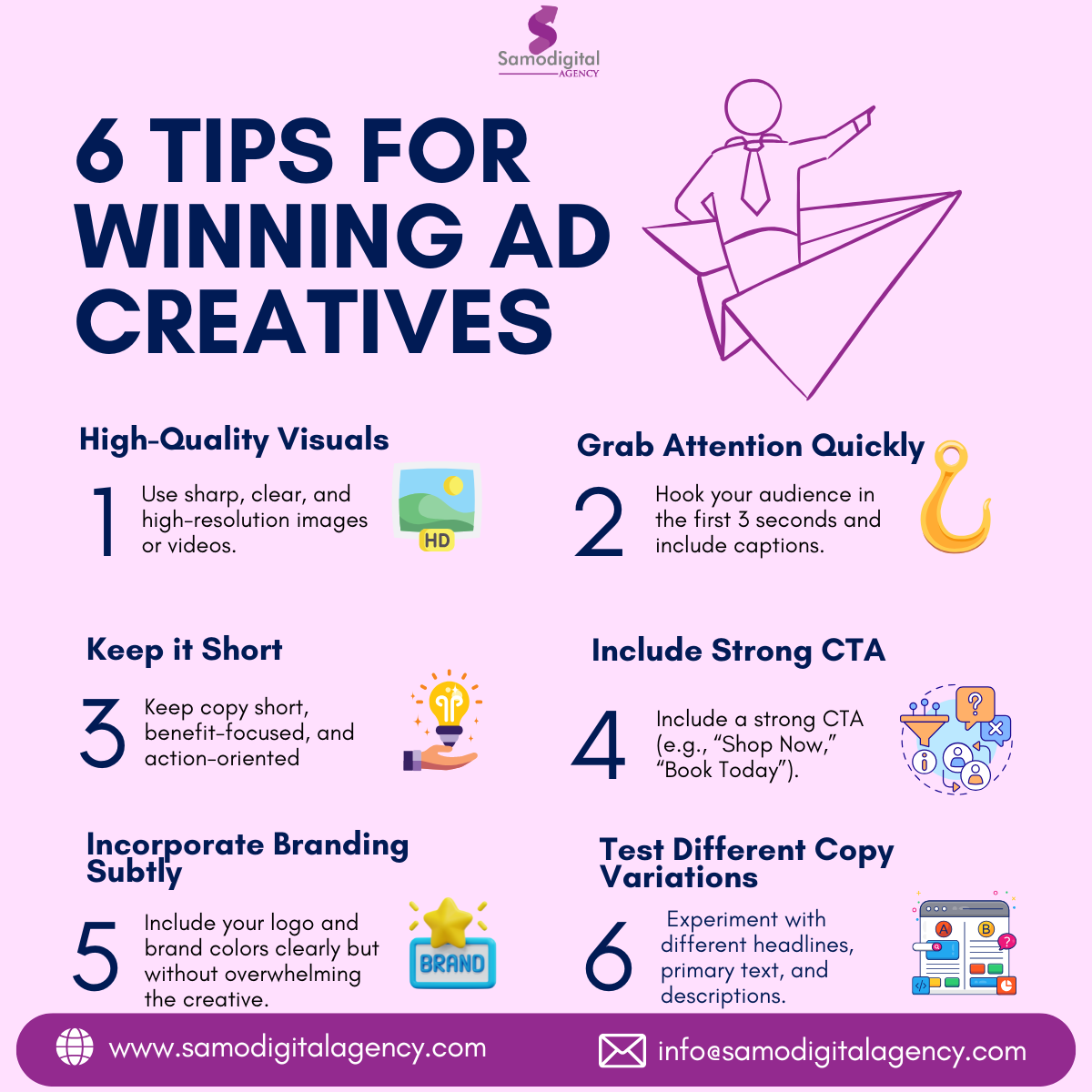
7. Set Up a Budget and Bidding Strategy
How do you want to spend on your ads? Budgeting plays a crucial role in campaign success. You can choose between a daily budget, which sets a consistent daily spend, or a lifetime budget, which allocates a total spend over a fixed campaign duration.
Meta’s bidding strategies include Lowest Cost, Cost Cap, and Bid Cap, each serving different objectives. If you are new to paid advertising, starting with a small budget allows for testing and optimization before scaling up. Analyzing performance metrics helps determine where to allocate more budget for the best results.
8. Monitor, Analyze, and Optimize Performance
Once your ad is live, go back regularly to track its performance in Meta Ads Manager.
Key metrics to monitor:
- CTR (Click-Through Rate)
- CPC (Cost Per Click)
- Conversions and Leads
- ROAS (Return on Ad Spend)
Always pause underperforming ads, reallocate budget to strong performers, and keep testing new creatives. Meta’s breakdown reports let you dig into which placements, age groups, or devices are working best.
Final Thoughts
Running effective Facebook and Instagram ad campaigns requires a blend of strategic planning, audience targeting, compelling creatives, and continuous optimization. Staying updated with Meta’s evolving ad policies and experimenting with different strategies ensures long-term success. By following these steps, businesses can harness the full potential of social media advertising to drive growth and achieve their marketing objectives.
You can email us via info@samodigialagency.com to book a free strategy call today and we can help you run and set up Meta Ads
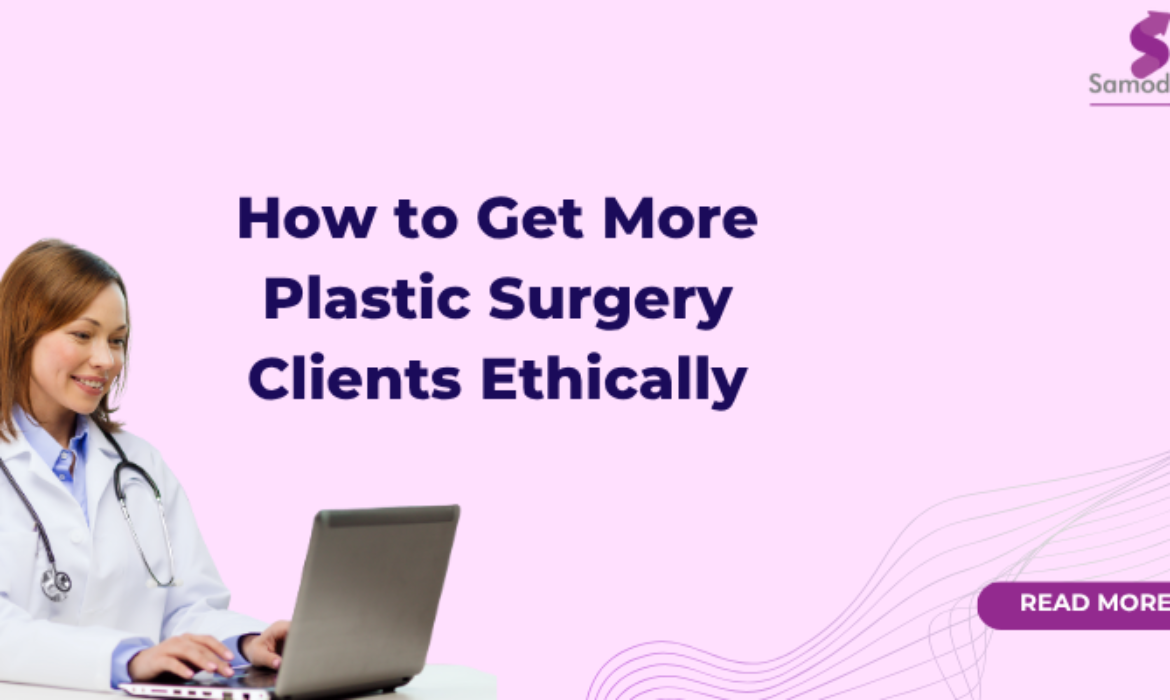
How to Get More Plastic Surgery Clients Without Compromising Ethics
You might be a skilled plastic surgeon or clinic but that might not be enough to attract clients! Let’s face it; this is one of those niches that is quite competitive. In other words, you need to stand out if you are to convert more clients. The good news is that you don’t need to compromise your ethics to grow your practice. You can still attract new clients whilst respecting the personal, vulnerable nature of cosmetic procedures. Here’s a guide on how to get more plastic surgery clients without crossing ethical lines.
Lead with Customer Education, Avoid Enticement!
The best place to start when it comes to getting more clients is to build your authority in the market. This is what using tailored ethical marketing in plastic surgery comes in. You are better off starting by offering value-first content.
Remember this is a space where there are tons of aggressive marketing tactics used by competitor medical clinics looking to also get more plastic surgery clients. This means that most prospective patients tend to be often overwhelmed or misinformed.
You can thus stand a cut above the rest if you can position yourself as the educator, not the salesperson.
For example, you can tap into FAQ-style posts and video explainers like say honest procedure breakdowns. Make sure you avoid flashy language in your communication approach.
Tip: If you’re already working with a plastic surgery marketing agency, make sure they focus on educational content strategy instead of the hard-sell tactics approach.
Use Transparent Messaging To Craft Trust
There is literally no ethics in your plastic surgery practice marketing without transparency! Yes, your prospective patients will love honest information.
Sure you want to get more plastic surgery clients but don’t give them any sugar-coated guarantees or unrealistic promises. In this regard, you should be upfront with everything. We are talking about things like costs, risks, recovery times, and outcomes in your marketing copy and content. Well, you have got the duty of care thus you should be medically accurate. This is why you ought to make sure you explain what the client should truly expect
Tip: You can partner with a good great marketing agency to help you refine messaging. This way you’ll be compliant, honest, and still persuasive as a medical service provider
Avoid Fear-Based or Shame-Oriented Advertising
Now, unethical marketing will tend to gear more towards insecurities. On the other hand, long-term patient relationships are more of growing respect and empathy. You should therefore avoid using language or imagery that suggests patients are “flawed” or “not enough” without your cosmetic surgery services.
You are better off focusing more on empowerment messaging: For example, something like a message that tells the client a procedure will enhance their natural features is a better approach. It also helps if you feature diverse models and real patients in your photos rather than just filtering to showcase warped “perfection”
Tip: Ethical marketing in healthcare isn’t about closing fast. It’s more of building patient confidence over time.
Practice Informed Marketing, Just Like Informed Consent
Ethical marketing in healthcare draws parallels with informed consent. Again, patients should feel educated and autonomous. That mindset should show up in all of your content written or videos-including social posts and consultation emails.
Case example; you could create some downloadable guides like: “How to Choose the Right Cosmetic Procedure for You” or something like “10 Questions to Ask Your Plastic Surgeon First.”
You could also share behind-the-scenes videos, surgeon Q&As, and staff spotlights.
After all, people out there love to connect with people, not corporate jargon. So, go for a more conversational language that aligns with your in-person demeanor.
A good plastic surgery marketing agency will help you create these kinds of assets that build long-term trust, not quick conversions.
Share Social Proofs, But Do This Responsibly!
You should also use before-and-after images and testimonials to convey your expertise albeit they must be handled ethically and legally. As a rule of thumb, always get written patient consent (not just verbal). You should also contextualize them like say you share patient stories including goals, concerns, and outcomes.
It’s also wise to use disclaimers like “Individual results may vary”. Again, avoid overpromising to your prospective clients.
It is wise to work with a plastic surgery marketing agency that specializes in crafting HIPAA-compliant content workflows. A good marketing partner should understand how to present patient success stories responsibly.
Wrapping up
In a nutshell, you can get more plastic surgery clients whilst operating within ethical frameworks of medicine. The key is to convey empathy, transparency, and expertise. This way you won’t just avoid ethical missteps but you’ll also stand out.
If you need expert support, partnering with a specialized global plastic surgery marketing agency like Samodigital Agency.
We are a specialized global plastic surgery marketing agency proudly serving clients across the US, UK, and Africa. Our mission is simple: to help your practice attract more patients, build a trusted online presence, and dominate your local market.
Our comprehensive services include:
- Advanced SEO for plastic surgery clinics, including fully managed link building to boost your Google rankings
- Strategic Social Media Management to engage your audience and drive leads
- Custom content creation, paid social and google ad campaigns, website optimization, and more
It doesn’t matter if you’re looking to expand locally or scale globally. We have the experience and expertise to get you there!
So, are you ready to elevate your cosmetic surgery practice?
Just contact us today via info@samodigitalagency.com to schedule a free consultation and discover how we can take your plastic surgery brand to the next level.
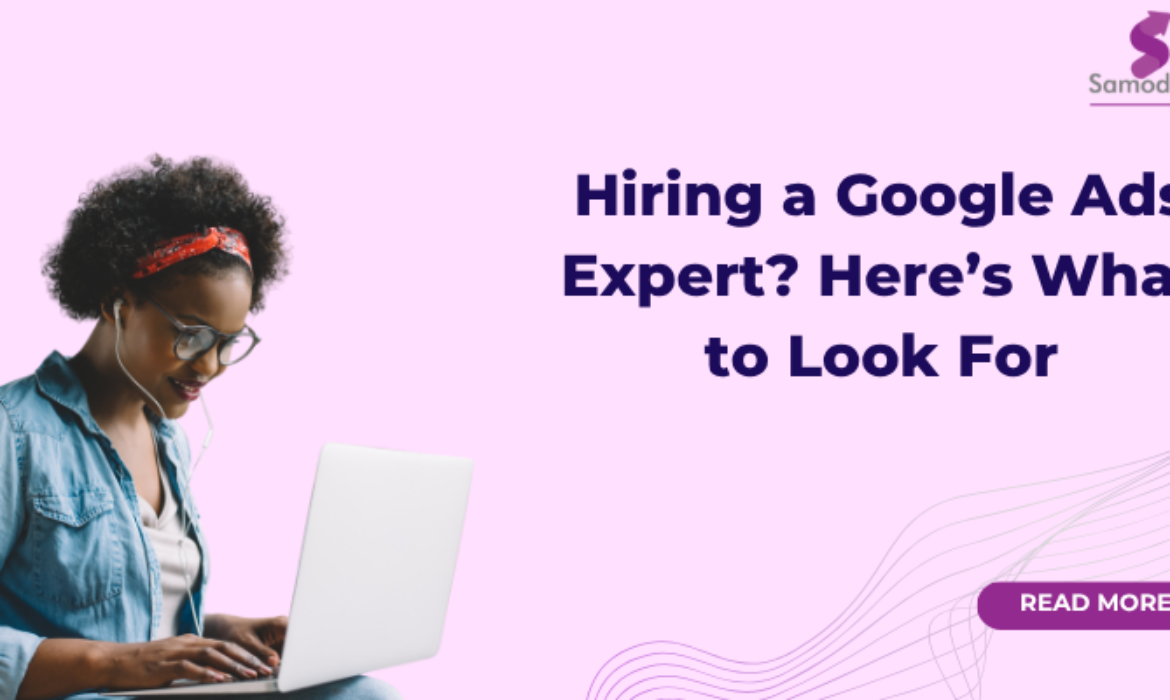
Looking for a Google Ads Expert? Here’s What to Look For (Agency vs. Freelancer)
Are you looking to ramp up your online visibility? You might be thinking of running Google Ads as a way to create more awareness and lead generation for your products/services. In this case you might want to look for a Google Ads Specialist to help you with everything from the campaign setup, audits and the ads management. You are probably wondering if you should go for a Google Ads Agency or simply find a Google Ads Freelancer? Well, there isn’t really a one-size fits all solution.
It all boils down to factors like your budget, goals, and the likes. Here’s a guide on what to look for when hiring a Google Ads Specialist be it a full-service agency or a freelancer.
Assess Your Individual/Business Goals
For starters, you’ll need to clarify what you want to gain from your Google Ads campaigns.
For example, do you want to grow your website traffic? Are you maybe looking to drive leads, or boost your business sales? You’ll need to define the KPIs you’ll be looking for. This will make it easier to determine if you need a versatile Google Ads Consultant, a dedicated Google Ads Freelancer, or the full service Google Ads Agency.
When To Hire a Google Ads Freelancer
Google Ads Freelancers are often solo digital marketing professionals. They are skilled at managing campaigns for multiple clients. They can be a great fit if you are a small to mid-sized business with a limited budget.
Pros:
- Cost-effective: This will give you lower overhead costs
- Personal attention: You work directly with the person running your campaigns.
- Flexible: A freelancer tends to be more adaptable in communication and strategy adjustments.
When to Hire a Good Google Ads Agency
A Google Ads Agency on the other hand offers a team of specialists. This will often include strategists, copywriters, designers, and analysts. This can be beneficial if you have a project that’s relatively complex
Pros:
- Full-service: Top agencies can give you end-to-end services. They can handle everything from keyword research to landing page designs and optimization.
- Team of experts: You’ll get access to multiple specialists e.g., a Google Ads Consultants, analysts, designers and more in under one house.
- Scalable solutions: This is often ideal for a growing business or large accounts.
What to Look for in Any Google Ads Expert
Regardless of if you’re hiring a freelancer, agency, or an independent Google Ads Consultant, you definitely want to find the right fit.
Now, there are universal qualities and credentials to watch for:
- Google Ads certification: You should verify their credentials to ensure that they have the right skill sets to get the job done. You should vet that they know their way around platforms like Search, Display, Shopping, and YouTube ads, not just the basics.
- Proven track record: You should also ask for case studies or references showing measurable results.
- Transparent communication: Look for a provider that will make communication and collaboration easier.
Common Pitfalls to to Avoid When Working With Google Ads Freelancers & Agencies
- Promises of instant results: You should keep in mind that Google Ads tends to be data-driven. In other words, performance optimization takes time.
- No access to your account: Avoid an agency or a freelancer that will want to have full admin access to your ad accounts.
Which Should You Choose?
Again, it’s all about taking your pick depending on your project. If you’re on a tight budget and need hands-on attention, a Google Ads Freelancer might be your best option. If you have more complex needs or plan to scale quickly, then you need the right Google Ads Agency.
Ready to Grow with Google Ads?
Whether you’re looking for a dedicated Google Ads Freelancer on a retainer or a full-service Google Ads Agency experience, we’ve got you covered!
Our services cover:
- Google Ads Campaign Setup
- Google Ads Optimization
- Google Ads Audits
- Google Ads Scripting
- Google Shopping Feed Setup
- Conversion Tracking (GA4)
- Google Ads Account Review
- Google Ads Suspension Help
- PMAX (Performance Max) Scripting
- DSA (Dynamic Search Ads) Setup
You can email us via info@samodigialagency.com to book a free strategy call today and discover the smarter way to scale with a trusted Google Ads Expert by your side.
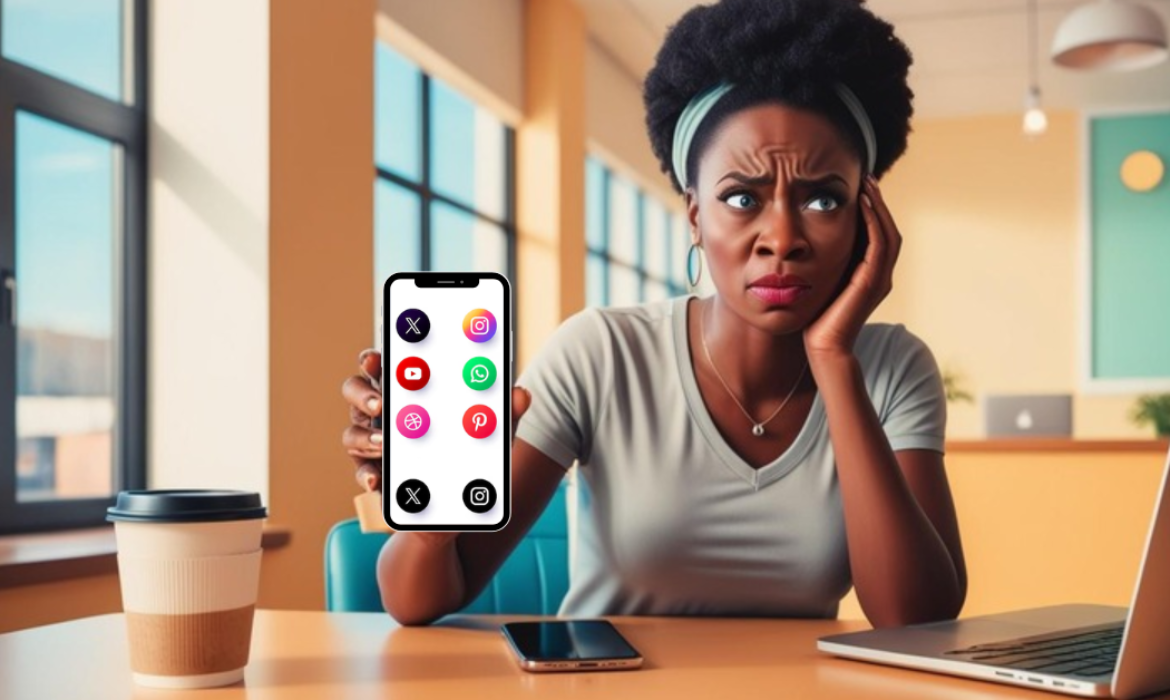
If Social Media Went Dark Tomorrow Would Your Brand Still Reach People?
Picture this: It’s the launch day for your latest campaign. You’ve been engaging with customers on X, answering queries in real-time and building buzz. Suddenly, at 10 AM, the social media platform you intend to launch campaign goes dark. Your team can’t log in, customers can’t reach you, and your carefully planned campaign stalls. Complaints pile up, and you’re left scrambling with no immediate way to respond.
This isn’t just a hypothetical. It’s what many brands faced during the X outage on May 22, 2025. A data center issue, possibly linked to a fire in Hillsboro, Oregon, knocked out login, signup, notifications, and Premium features for over 24 hours, leaving users and businesses worldwide in the lurch.
We’re still experiencing issues from yesterday’s data center outage. Login and signup services are unavailable for some users, and there may be delays in notifications and Premium features.
Our team is working 24/7 to resolve this. Thanks for your patience—updates soon.
— Engineering (@XEng) May 24, 2025
As marketers, creators, and businesses, this raises a crucial question:
What’s your plan when your primary platform goes offline?
If your brand relies on one social platform for:
- Customer service
- Community engagement
- Lead generation
- Product or content updates
…an unexpected outage could mean lost visibility, frustrated customers, and missed opportunities.
For Users:
X is a hub for news, networking, and communication. Outages disrupt these activities, causing frustration and potentially eroding trust, especially with X’s history of technical hiccups.
For Brands:
- Customer Service Disruptions: Brands relying on X for support couldn’t respond to inquiries, risking customer dissatisfaction. For instance, I tried reaching out to my internet service provider via X direct messages who has been reliable with X support but I couldn’t. I had to make a phone call!
- Reputational Risks: Unanswered queries can damage your brand’s image, pushing customers to competitors.
- Lost Engagement: Reduced visibility during outages can hurt marketing campaigns and sales.
What Smart Brands Should Do
- Diversify Your Channels Don’t rely solely on one platform. Maintain a presence on others like LinkedIn, Facebook, Instagram, TikTok, and YouTube.
- Invest in Owned Media Build direct lines to your audience through your website, blog, email newsletter, and even SMS or WhatsApp.
- Use Independent Support Tools Adopt help desks, chatbots, or ticketing systems that aren’t tied to social media.
- Back Up Customer Data Regularly export important interactions and audience insights from platforms you use.
- Have a Contingency Plan Monitor platforms, and be ready with messaging alternatives when your go-to platform goes down.
- Be Transparent: Inform customers promptly about disruptions to maintain trust.
Why avoid relying on one platform?
Depending solely on X can leave you vulnerable to:
- Single Point of Failure: An outage can halt your entire customer service operation.
- Infrastructure Risks: Issues like data center fires or cyberattacks are beyond your control.
- Policy Shifts: Platform changes can disrupt your strategy.
- Customer Frustration: Unreachable support can drive customers away.
Don’t wait for the next outage to rethink your strategy. Diversify your channels and prepare for the unexpected.
Final Thoughts
Social media has transformed how we connect, market, and support our audiences. But as recent outages have shown, platforms can and will go silent without warning. For brands, businesses, and creators, the key lesson is this:
You don’t own your audience on social media—platforms do.
Relying solely on one channel is like building your business on rented land. When the landlord has issues, your access, visibility, and communication can vanish in seconds.
Now is the time to future-proof your digital presence. It is important to diversify your platforms. Strengthen your owned media and have contingency plans. The brands that thrive long-term aren’t just social they’re strategic, resilient, and always ready.
How do you handle platform outages? Share your tips below!


